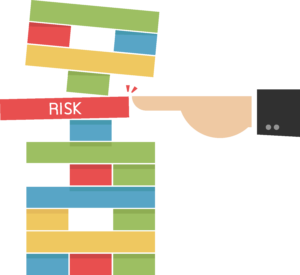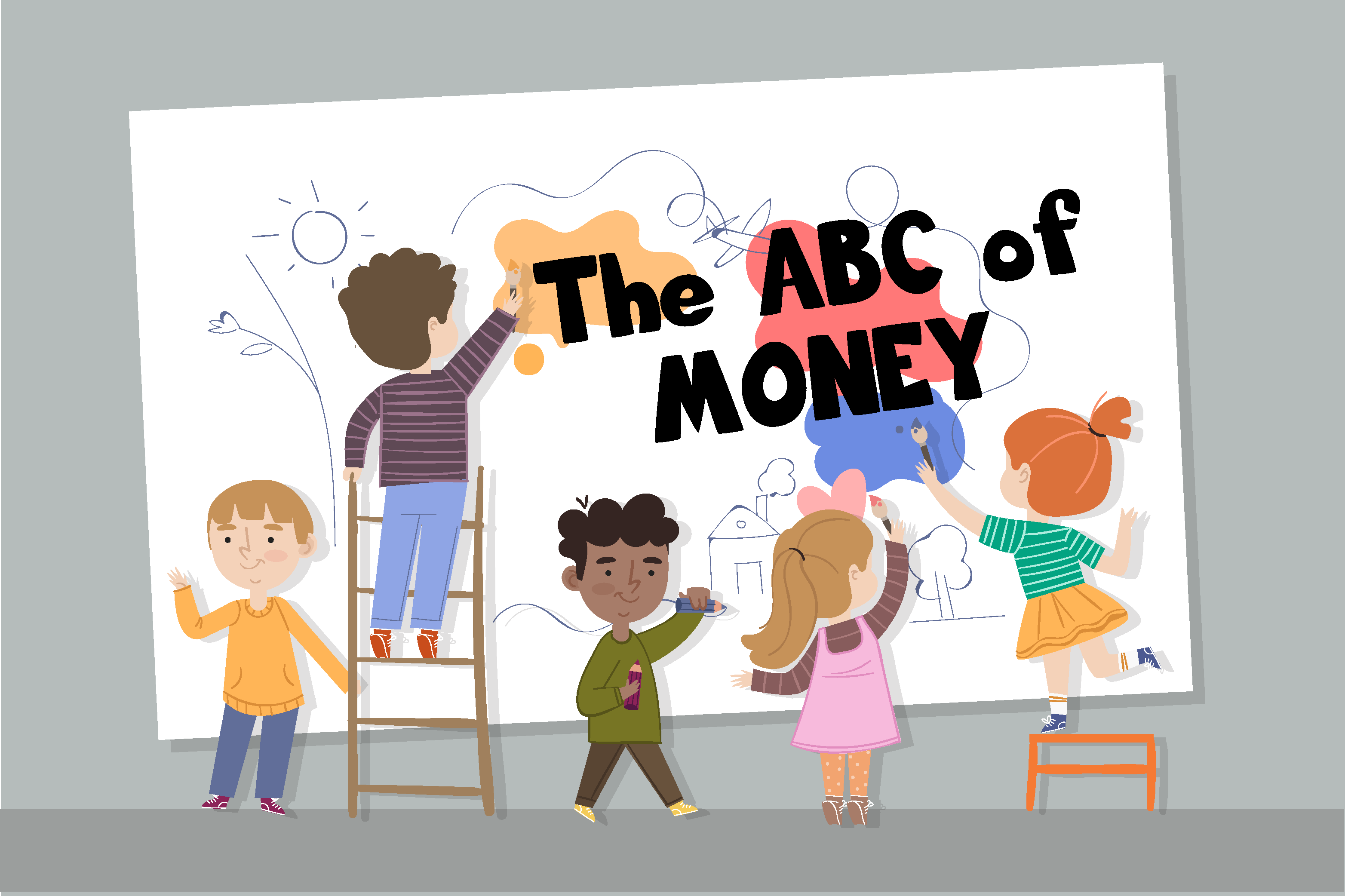Spending Money Wisely: A Beginner’s Guide for Kids
Money is an important aspect of our lives, and it is never too early to start learning how to manage it. Whether it’s receiving an allowance, doing chores for extra cash, or receiving monetary gifts on special occasions, kids have various ways of getting money. Therefore, it is crucial to teach them how to spend money wisely from a young age to avoid bad financial habits later on.
As a parent, teaching your child about money management can be a daunting task, but it is an essential life skill that can benefit them in the long run. While it may seem daunting, introducing basic money management concepts at an early age can help set a foundation for responsible financial behavior in the future. In this guide, we will provide some tips and tricks for teaching your kids how to spend money wisely.
The Importance of Money Management Skills for Kids
Money management is a critical life skill that everyone needs to have, regardless of age. Teaching kids about money management early on can help them make informed financial decisions, avoid debt, and live a financially stable life. Developing good money habits early in life can lead to a lifetime of responsible financial behavior, which is essential in today’s society.
Understand the Value of Money
It is essential to teach children the value of money and how to appreciate it. One way to do this is by giving them an allowance and encouraging them to save some of it. Children need to learn that money is a finite resource, and they must learn how to budget and prioritize their spending. When children are given an allowance, they learn the value of earning money, and they learn to make informed decisions about how to spend it.
Teach Them to Budget
Learning to budget is one of the essential money management skills that kids need to develop. The earlier they learn to budget, the better equipped they will be to manage their money effectively. One way to teach kids how to budget is by helping them set a savings goal, such as saving for a toy or a game. Encourage them to save a portion of their allowance each week, and once they reach their savings goal, reward them. This will teach them the value of setting goals and working towards achieving them.
Encourage Smart Spending
Teaching kids how to spend money wisely is an essential part of money management. Encourage them to think carefully before making purchases and to consider whether the item they want is a need or a want. Help them understand that they cannot buy everything they want, and they need to prioritize their spending. Teach them to compare prices and look for sales, and encourage them to consider buying used or refurbished items when possible.
Lead by Example
Children learn by example, so it is essential to lead by example and model responsible financial behavior. Be open and honest with your kids about money matters, and involve them in family financial decisions. Talk to them about saving for the future and the importance of avoiding debt. Encourage them to ask questions and be curious about financial matters.
Make Learning Fun
Learning about money management doesn’t have to be boring. There are plenty of fun and creative ways to teach kids about money. For example, you can use board games or online games to teach them about budgeting and saving. You can also encourage them to start a business or a lemonade stand to earn some extra money. These activities can help kids learn valuable money management skills while having fun at the same time.
Teach the Basics of Banking
Learning about banking is an essential part of money management. Teach your kids about the basics of banking, such as opening a savings account, depositing money, and earning interest. Show them how to use an ATM and how to check their balance online. These skills will help them become more financially independent as they get older.
Encourage Generosity
Teaching kids about money management isn’t just about saving and spending; it’s also about giving back. Encourage your kids to be generous with their money and to donate to charity or to help those in need. This will teach them the value of giving and help them develop empathy and compassion towards others.
Incorporate Real-Life Scenarios
It’s essential to incorporate real-life scenarios into your child’s financial education. For example, when you go grocery shopping, involve your child in the process of creating a shopping list and setting a budget. Teach them how to compare prices and make informed decisions about what to buy. When you pay bills, explain to your child what the bills are for, and how you budget for them. These real-life scenarios can help your child understand the practical application of money management skills.
Teach the Consequences of Poor Money Management
It’s important to teach children the consequences of poor money management. For example, if they spend all their allowance in one day, they will have nothing left for the rest of the week. Teach them about the dangers of debt and how it can impact their financial future. Explain to them the consequences of making impulsive purchases and not budgeting for their expenses. These lessons can help your child understand the importance of responsible financial behavior.
Encourage Saving for the Future
Teaching kids to save for the future is an essential part of money management. Encourage your child to save a portion of their allowance each week and to set long-term savings goals. For example, they could save for a college fund, a car, or a down payment on a home. Encourage them to track their progress and reward them when they reach their savings goals. These habits will help your child develop a sense of financial responsibility and plan for a secure future.
Start Small
It’s important to start small when teaching kids about money management. Begin by teaching them basic concepts such as saving, budgeting, and spending wisely. As they get older, you can introduce more complex topics such as investing, credit, and debt management. By starting small and building a strong foundation, your child will be better equipped to manage their finances as they grow older.
Teaching kids about money management is an essential life skill that can benefit them in the long run. By introducing basic money management concepts at an early age, you can help your child develop responsible financial behavior that will last a lifetime. Encourage them to save, budget, spend wisely, and be generous with their money. Lead by example and incorporate real-life scenarios into their financial education. By doing so, you’ll help your child develop the skills and knowledge they need to be financially independent and secure in the future.
Spending money wisely is a crucial life skill that kids must learn at an early age. With the help of FINSTART, kids can learn to manage their finances, create a budget, prioritize their expenses, avoid impulsive buying, save for the future, and even earn money. Teaching these skills to kids will set them up for a successful financial future, and empower them to make informed financial decisions.
The ABC’s of Money for Kids
Just as we use the alphabet “A for Apple” “B for Ball” etc. to teach our kids the English language, let’s also teach them the language of money using the ABCs of money.
A – ASSET

Assets are the things you own, and can be sold to get money.
B – BANK
A place that looks after people’s money, keeps it safe and lends money to people to help them buy things like houses.
C – CURRENCY

Consists of paper money and coins. It is the official money of a country. Each country has its own form of currency –
India – Rupee
USA – Dollar
United Kingdom – Pound
D – DEPOSIT

A deposit is when people put money IN the bank.
E – EARNINGS
The money people receive by doing any work is called earnings.
F – FINANCE

Management, creation and study of money.
G – GOODS

Things that people make or grow to sell. Like Toys, Laptops, Apple etc.
H – HEDGE

A plan to reduce risk.
I – INTEREST

A reward for saving and cost of borrowing.
J – JOINT ACCOUNT

A bank account, where money is shared by two or more people.
K – KYC

KYC means Know Your Customer. A process of verifying the identity of the customer.
L – LOANS

Money that people borrow from someone for a specific reasons with a promise to pay back.
M – MONEY

Money is what people use to buy things. Medium of exchange.
N – NEEDS

Things people must have to live.
O – OPPORTUNITY COST

When people give up something to do something else.
P – PROFIT

Income – Expenses = Profit
The money made by a business.
Q – eQuity

Represents ownership in a company.
R – RISK

A chance of getting hurt or losing something.
S – SAVING

The money people sets aside and decides not to spend.
T – TAX

A sum of money that people pay to the government for the services provided by the government.
U – UNBANKED

When a person does not have or use a bank account.
V – VALUATION

The process of determining the worth of an asset.
W – WANTS

Things that are nice to have but not necessary to survive.
X – eXpense

The money spent to purchase things.
Y – YIELD

The extra money people make by investing their money.
Z – ZERO BALANCE ACCOUNT

A bank account in which people can have “0” money.
Teaching children the basic words of money from an early age will help them as they grow and enter the real world. Finstart is a platform where your child can learn the language of money in a fun and interactive way.
Contact us to know more about our programs.
The Power of Saving: How to Build a Strong Financial Foundation
Financial stability is one of the most crucial aspects of life that determines our well-being, peace of mind and our ability to achieve our goals and aspirations. Building a strong financial foundation is a gradual process that requires discipline, patience, and a strong commitment to saving. The power of saving is immense, and it is something that can help individuals to achieve financial security and independence, no matter what their current financial situation may be.
The Importance of Saving
Saving is the foundation of financial stability and security, as it provides individuals with a cushion against unexpected expenses, emergencies and allows them to plan for the future. By developing a savings habit, individuals can ensure that they have access to the funds they need to meet their financial obligations and pursue their goals. Additionally, saving helps to reduce stress and anxiety about money, and it provides individuals with the peace of mind that comes from knowing that they have a safety net in place.
Setting Financial Goals
The first step in building a strong financial foundation is to set financial goals. Goals provide direction and purpose and help individuals to focus their efforts and stay motivated. When setting financial goals, it is essential to consider both short-term and long-term objectives. Short-term goals might include paying off debt, building up an emergency fund or saving for a down payment on a house. Long-term goals might include saving for retirement, starting a business or paying for a child’s education.
Creating a Budget
Once you have set your financial goals, the next step is to create a budget. A budget is a plan for how you will allocate your income and expenses, and it is essential for ensuring that your spending aligns with your goals. A budget helps individuals to track their spending, identify areas where they can cut back, and prioritize their spending. There are various budgeting methods available, including the 50/30/20 rule, the envelope method, and the zero-based budget. Individuals should choose the method that works best for them and stick to it.
Saving Automatically
Automatic savings is one of the most effective ways to build a strong financial foundation. By setting up automatic transfers from your checking account to your savings account, you can ensure that you are saving regularly and consistently. This can help individuals to overcome the challenges of discipline and motivation and ensure that they are making progress towards their financial goals.
Reducing Debt
Reducing debt is another important aspect of building a strong financial foundation. High levels of debt can have a significant impact on an individual’s finances and can prevent them from saving and investing effectively. To reduce debt, individuals should prioritize their payments and focus on paying off high-interest debt first. Additionally, they should consider ways to increase their income, such as taking on a side job, negotiating a raise or selling assets they no longer need.
Investing for the Future
In addition to saving, investing is another crucial component of building a strong financial foundation. Investing allows individuals to grow their wealth over time and achieve their long-term financial goals. There are various investment options available, including stocks, bonds, mutual funds, and real estate. When investing, it is important to consider factors such as risk tolerance, investment goals and the length of time you plan to invest for.
Building an Emergency Fund
An emergency fund is an essential component of a strong financial foundation. An emergency fund provides individuals with a cushion against unexpected expenses and emergencies, such as job loss, medical bills, or home repairs. The goal of an emergency fund is to have three to six months’ worth of living expenses saved. By having an emergency fund in place, individuals can reduce the stress and anxiety associated with unexpected expenses and ensure that they have the funds they need to weather a financial crisis.
Managing Credit
Credit is an important tool that can help individuals to build wealth, but it can also be a source of financial stress if not managed properly. To build a strong financial foundation, it is important to maintain a good credit score and manage credit responsibly. This means paying bills on time, avoiding high levels of debt, and monitoring your credit report regularly to ensure that all information is accurate.
Protecting Your Finances
Protecting your finances is an important part of building a strong financial foundation. This includes protecting against identity theft, fraud, and other financial crimes. It is essential to safeguard personal information, such as social security numbers, bank account information, and passwords. Individuals should also invest in insurance, such as life insurance, health insurance, and property insurance, to protect against financial loss.
Incorporating Healthy Financial Habits
Incorporating healthy financial habits is an important part of building a strong financial foundation. This includes regularly reviewing and updating your budget, avoiding impulse purchases, and seeking professional financial advice when needed. Staying informed about personal finance and seeking educational resources, such as books, podcasts, and online courses, can also help individuals to make better financial decisions. Additionally, being mindful of how money is spent and making informed choices about expenses can help individuals to stay on track and achieve their financial goals.
The Power of Compound Interest
The power of compound interest should not be underestimated when it comes to building a strong financial foundation. Compound interest is the interest earned on an investment, plus the interest earned on the interest. Over time, compound interest can result in substantial growth, making it an effective tool for building wealth. For example, by investing just Rs.500 per month into a SIP, an individual could potentially have several lakhs saved by the time they retire.
Stay Committed
Building a strong financial foundation requires a long-term commitment and a dedication to saving and investing regularly. It is important to stay committed to financial goals and to remain disciplined, even when faced with obstacles or temptations to spend. Remember, building wealth takes time and patience, but the power of saving and investing can help individuals to achieve financial security and independence.
Building a strong financial foundation is a process that starts at an early age and lasts a lifetime. Finstart is dedicated to helping young individuals establish a strong financial foundation by teaching them the basics of finance in an interactive and engaging way. By learning the importance of saving, budgeting and investing from an early age, young individuals can develop good financial habits that will benefit them throughout their lives. Practicing these habits from an early age can help establish a strong financial foundation and set individuals on a path towards financial security and independence. Finstart provides a comprehensive curriculum and interactive tools to help young individuals understand the value of their money and make informed financial decisions.
Start your child’s financial journey with Finstart today. Contact us for more information and to join our mission of promoting financial literacy.!!
Should We Start Teaching Our Children About MONEY?
There are a lot of things we wish, we had learnt back when were young; like how to delegate our homework in school or how not to get caught cheating in an exam. Wouldn’t school life be much easier with these skills and not to mention, these skills would come in handy in as an adult too, maybe.
Silly stuff and shortcuts aside, there are in fact few things in life, which we do regret not learning in early stages of life; like the importance of finance and wealth. The whole concept of building, growing and managing personal finance, is so wrongly portrayed and conveyed in our generation, that our kids as well have not quite understood the crux of money.
Finance doesn’t just mean savings and investment. It begins with the understanding of money from its roots; how is it made, how much is spent vs how much do we need to spend, how to prioritize expenses and how to earn stability of income and to grow it.
Let’s take an example of a 10 year old kid who is allowed a pocket money of Rs.100 only in a month, to spend on anything he likes. On the 7th day of the month, the kid has bought himself a 50 rupees toy and a 50 rupees coloring book. The kid is happy because all he ever wanted in the first week of allowance fits his pocket money exactly. However, there are still 3 weeks left and the kid might still need new pens at the end of week 3. There is no one who has taught him the significance of prioritization, the basic difference between a need and a want and even is unaware of the concepts of savings and provisions.
Forget school life, even our teen life in college would have been much better, if we were taught these basic things about money. Our career decisions could have shaped better, if we had some fundamentals of how money works.
Recent studies say that children cultivate habits at as early age as 7 years old. They subconsciously imprint things they saw their parents doing and repeat the same, while growing up. If we are imparting morals and knowledge when kids barely know the difference between right and wrong, why are we not imparting the knowledge of wealth. Sure the kid doesn’t have to know how share market works, but why can’t they learn where money comes from and how is it utilized.
Schools being the primary mode of teaching anything to a student would be the best place to kick-start this. If schools were to include financial literacy in their extra-curricular along with other activities like sports, music, dancing etc,, our next generation is sure to become wiser and smarter than us, who not only can do their own taxes but can also make good decisions in investments of personal finance
I know what are we all thinking, isn’t a 7 year old kid anyway leading a very hectic school life, with numerous subjects, several extra-curricular activities? However, what we fail to see is that this is not merely an activity or a subject to learn to pass an exam, but is a necessary life skill which each one of us needs in life, because surviving isn’t just enough, we need our upcoming generations to thrive. They need to learn the perspective of best out of waste and a difference between being a miser and being just resourceful.
There are lots of different innovative and creative ways schools can acquaint the children about these basic concepts of finance. With the right set of faculties or partners, a subject like financial literacy can also become as interesting as learning dancing or painting, We hope going forward; we will see schools actively engaging their kids in the concepts of financial literacy.
In the mean time, if you have any questions or want to understand more about the importance of Financial Literacy for the kids aged between 7-14 years, reach out to us at: https://finstart.in/contact-us/
How to Manage Your Money SMARTLY
As kids what is the one piece of advice you often receive about money from elders- Use it wisely.
Does it mean to use it sparingly? Or are they expecting you to spend less and save more? If that is the answer, then how much should you be spending and how much should you save? Should you spend less and save more?
There are way too many questions and opportunities that arise when we start to think about money, and all of this puts you in a pickle. It gets confusing to choose amongst the multiple investment avenues and decide what is best suited for you. Why is it that everyone around you put so much emphasis on money and the saving part of it?
We hear a lot about savings and how to do so day in and day out, but what does that mean and why is it the most important thing in life.
The first and foremost step towards learning about the importance of money is to acknowledge and accept the below-stated points-
- It has become more than a necessity.
- It is a crucial parameter that tells a lot about the standard of living of an individual.
- You must work for it.
Using it wisely is an advice that would have worked for the millennials who, as kids were naïve and indifferent to the tips and tricks of managing money.
For the Gen Z who are technologically advanced and possess a different level of understanding and maturity, the more logical advice would be to use money smartly. When you train your mind to think about utilizing the money available at your disposal smartly, you start to realize that saving is not the only thing out there, when it comes to managing your money. It is just a small fragment of a rather large but easily solvable puzzle.
Do not get carried away and overwhelmed by the volume of content that is available on the internet. It may seem like handling your finances is a task that you will learn once you start earning money. However, that is not true. We are here to assure you that managing money can start at the age of 7. The early you start, the better you will get at managing your money. It is a versatile puzzle for ages 7 and onwards that makes for a stronger foundation when it comes to building a healthy net worth.
We are here to help you solve this puzzle piece by piece.
Let us put it this way, to make money is to manage it smartly. Here we will talk about how there is more to money than just savings and investing it in the best mutual fund scheme or the stock market or opening a savings account in a bank.
Money Management is the trait of a forward thinker. It is an attitude that will help you in the long run. Now when you look up the definition of “Money Management”, this is the simplest definition you get-
Money management refers to the processes of budgeting, saving, investing, spending, or otherwise overseeing the capital usage of an individual or group. (Source: Investopedia)
To put it in simple words, the following “how-to” will help you to better understand the concept of managing money effectively-
Or
The following points will help you to better understand the concept of managing money SMARTLY–
- Spending Plan – How to minimize your expense?
Planning is an essential part of every goal you set in your life. If you have a strong plan in place and the determination to follow it down to a T, you will be able to achieve every and any goal of yours. A spending plan includes nothing but effective ways of spending money. Do not give in to your desires and spend your money only on things that are essential and that will bring value into your life.
- Managing Saving – How to maximize your savings?
Not spending money on unnecessary desires now will allow you to save and invest. At your age, you enjoy the liberty of taking risks. Speak to your parents about the investment options available for you to save money. From saving it in a bank to investing in a mutual fund scheme, there are an array of options out there. All you need to do is reach out and grab the opportunities available.
- Allowance maximization – How to earn above and beyond allowance?
You get a monthly allowance from your parents. There are ways to earn beyond that and the key is to start early. Understand that money will not always be available to you freely like it is now, you will have to work for it in the future. Develop skills that will help you to earn more money. A little chore in exchange for money hurt no one. Help around the house with simple chores in exchange for money.
- Right Budgeting Technique – How to plan your expenses?
There are several techniques by which you can track your expenses and savings. Effective budgeting techniques enable you to understand where you stand concerning your finances. You jot down your expenses for the month, keep your spending in check, estimate the surplus funds and save for a rainy day. It is as easy as it sounds. Find what works for you and follow it religiously but keep room for improvements.
- Time value of money – How is starting now beneficial?
This is where the time value of money comes into play. The money you earn now will be of very little value 5 years down the line but the money you save now will give you fruitful returns within a similar timeline. Let us understand this with an example- If I give you Rs. 100, you will be able to buy 10 chocolates for Rs. 10 each now but with the same Rs. 100, 10 years down the line, buying 10 chocolates may not be possible. This is because the price of chocolates may have increased by then. However, the same Rs. 100 invested now in a savings account that gives you a return of 7% will have increased in value 10 years down the line.
- Learning to build a sound net worth – How to build a sound net worth?
This one is simple and needs no explanation. You follow the above steps with utmost discipline, and you will have a sound and strong financial background. Set a goal for yourself and work towards achieving it every day. Challenge yourself by increasing the amount of money you desire to save every month. Every rupee you save will bring you closer to your goal.
- Your chance to make smart choices is now! – How will this benefit you in the long run?
If you have understood the significance of effective money management skills, you would have understood by now that the choices you make today will have a huge impact on the standard of living you wish to achieve in the future. Hence, this is the time to make the right and sound choices.
FinStart understands this need to teach kids about the importance of money and how to manage it.
It is a one-stop destination, offering programs for children in the age group of 7-15 years teaching them financial literacy skills.
Contact us to know more.
5 Reasons Why Your Child Needs To Learn About Finances at an Early Age
Kids these days have shown potential to be very fast learners and have a good grasp on things than before. You would have seen kids 6 years of age, efficiently using a phone to see YouTube videos and even download games from Playstore. There is no doubt that a 7 year kid can now understand different things ranging from human emotions, to technology. Parents too never hesitate these days to teach them about concepts, which they never learned until entering teenage. In spite of this, most parents feel that their kids are too young to be taught about personal finances and money and do not involve them in regular day to day finance management, due to which kids do not learn financial sensitivity until much later in their life.
However, many child psychologists and studies have come out to say the exact opposite. One study from the University of Cambridge found that kids are already able to grasp basic money concepts between the ages of 3 and 4. By age 7, basic concepts relating to future financial behaviors will typically have developed.
Lets talk about why exactly does your child need lessons on money and finances at an early age.
1. Difference between a need & desire
Who among us have tried explaining our child that the video game that they are embarrassing us for, by crying in the middle of the mall, is not worth crying for? Usually parents feel, it is baseless to argue and buy the game, but the ones who can’t afford, come up with some silly reason that they have this at their home already. However, how will they get to know the difference between a need and a demand, the importance of prioritizing a school uniform than a video game? How much budget does the family have to spend and how much is utilized in necessary things for survival? Such things when taught at an early age, tends to not only to make a child considerate but also shape their overall personality
2. Financially healthy habits
Maturity doesn’t come with age, it comes with experience. We do not need wait for our children to be 18, to get matured. Early life experiences, teachings and encounters with finance, can make inculcate healthy habits in terms of spending, budgets and savings, by the time he/she finishes school. This way, their financial decisions, after they start earning ought to be sounder than we had taken at 25-26 years.
3. Self Sufficiency:
Even after growing up and earning, most of us struggle to do our taxes, misunderstand investments and savings. These are some very complicated chapters to learn even in our adulthood and we normally depend on someone else to do that for us. Kids need not learn these things in their early age, but understanding fundamentals of very money comes from, how is it spent and why do we need it can help a child become self sufficient and eases the process of learning profits and taxes, in the later part of their lives.
4. Sensitivity and importance of money
If I got a dollar for every time my parents had taunted me saying that money doesn’t grow on trees, I probably would be richer today. But alas, money still doesn’t grow on trees, who will get me that dollar? The reason our parents use this cliché is to teach us the importance of money and how much hard work and efforts goes into earning a single dollar. Kids have not been sensitized to this subject, as parents usually feel that they are not old enough to understand the significance of money. Sure, they don’t have to dig into IPOs and secondary markets, but who says they would not understand the sweat and work that goes into earning those dollars. The kids would sure be more sensitive in making demands, if they too are equipped with the information of where exactly the money comes from.
5. Setting and achieving goals:
A right set of fundamentals on how money is made, how is it grown, what is budget and what are savings can help a child important lessons on setting goals and the importance as well the joy of achieving them. From small goals in early childhood like saving pocket money to bigger goals in later life like investing those savings to grow money, can be set from very early age to help them make wiser and smarter decisions in future.
There are lot of ways parents can teach these basic life skills to their children. Teaching financial literacy does not necessarily mean to have access to highly advances courses or have educated parents. Parents can simply involve their child in day to day money management tasks, from counting currency notes to having the kid go out to buy some groceries with limited money. Parents can impart lot of these concepts by just sharing their life experiences and by just letting their child be part of routine discussions on budgets and savings.
To know more about financial literacy and how to teach your kids, reach out to us on: http://www.finstart.in/
Teach Your Children “S” for- Save, Spend & Share
We all deal with money on a daily basis. Every day we encounter situations of save, spend and share while handling money.
Going by public transport or eating out or helping someone, everything involves money related decisions. Today we are making such decisions, tomorrow our children will face similar decisions in life.
How about we starting to teach them about money from an early age. Research proves that “a child can develop good money habits as early as age seven.” It will not only help them to learn to manage money wisely but will also develop a healthy and positive relationship with money.
When we teach our kids to read, we start with the simple alphabets of ABC. When we teach them about money we start with the three “S” – SAVE, SPEND & SHARE.
Let’s begin with –
Saving
We all know the phrase “A penny saved is better than a penny earned.”
But do we actually practice it?
Saving is difficult, but we also agree it is important. That is why we ensure our children learn how to save. Because children develop habits early in life. Habit of saving is no different.
We can begin their journey of saving by teaching them to always save a portion of the money they receive before spending it all, putting spare change in a jar or save for something they always wanted.
It will help them learn value of money and a habit of saving now.
Spending
Children or adults, everyone likes to spend. We have seen our parents spend money on us and our children watch us do the same. Something which nobody has to teach. One thing we can surely teach our children is it to spend wisely.
We can make them smart spender by teaching them the difference between needs and wants. Suggest them to shop with a list to avoid impulsive buying. Always compare the price before buying. You can also help them to stay focus on their goal.
A good exercise for your children will be to write down their expense every time they spend their money.
They will be surprised..!!
Sharing
We were taught “Sharing is Caring” when we were young and now we pass those lessons down to our children. We teach them to share their games, stationery, food, toys etc. but we don’t talk much about sharing their time and money.
Teach them to donate some of the portion of pocket money or money they receive to less fortunate people or they can go and spend time in orphanages or old age homes.
Sharing is one of the most satisfying and wonderful feelings in the world. Giving what we have to someone who doesn’t have it spreads happiness all around us.
Involving children in the process sends a positive message to them and it gives them the power to spread joy and happiness all around them.
Let’s Start Today!
The best way to teach about money is to give them 3 jars. Tell them to label each jar as: SAVE – SPEND – SHARE.
Whenever they receive money, help them divide the money into these 3 jars. As a family you can decide on what percentage to allocate to each category.
Beginning their journey with such small lessons will result in creation of powerful and positive money habits.
Contact us to know more on financial education for children.
Why financial literacy is important for children
Financial literacy is the ability to use knowledge and skills to make effective and informed money decisions.
Introducing money concepts to our children at an early age will help them grow into adults, who can achieve financial security and success.
What is financial literacy?
Financial Literacy refers to the ability to use knowledge and skills to make effective and informed money decisions.
The Organization for Economic Co-operation and Development (OECD) defines financial literacy as – “A combination of awareness, skill, attitude and, behavior necessary to make sound financial decisions and ultimately achieve individual financial well being.”
What is the financial literacy rate in India?
India is the home to almost one-fifth of the world’s population and has an overall literacy rate of nearly 80%. Yet the financial literacy rate in India is the lowest.
According to a survey conducted by The National Centre for Financial Education in 2019, only 27% of the Indians are financially literate.
Why is financial literacy important for children?
Indian families believe that their children are not old enough to learn about finance.
We live in a world where we do not allow our children to jump into the deep end of the pool before he or she learns how to swim. Nor do we allow them to drive before he/she learns to drive. But we allow them to enter the complex financial world without teaching them basic money skills.
Someday children have to start making basic financial decisions in their lives. Then why not start early. If we teach them financial literacy at school age, it will help them in the long run in making financial decisions.
How to start teaching them financial literacy?
It is said that “parents are the first teachers of their children.”
As a parent, we can start by ensuring our children inculcate a habit of savings with a piggy bank, making a budget, recording their expenses in their diary.
Apart from that, you can talk to them about money, take them to grocery shopping or banks with you.’
However, not all parents feel confident in their familiarity with financial literacy or may not know the best way to introduce various concepts of money to their children.
FinStart understands this need to teach kids about the importance of money and how to manage it.
It is a one-stop destination, offering programs for children in the age group of 7-15 years teaching them financial literacy skills.
Contact us to know more.










